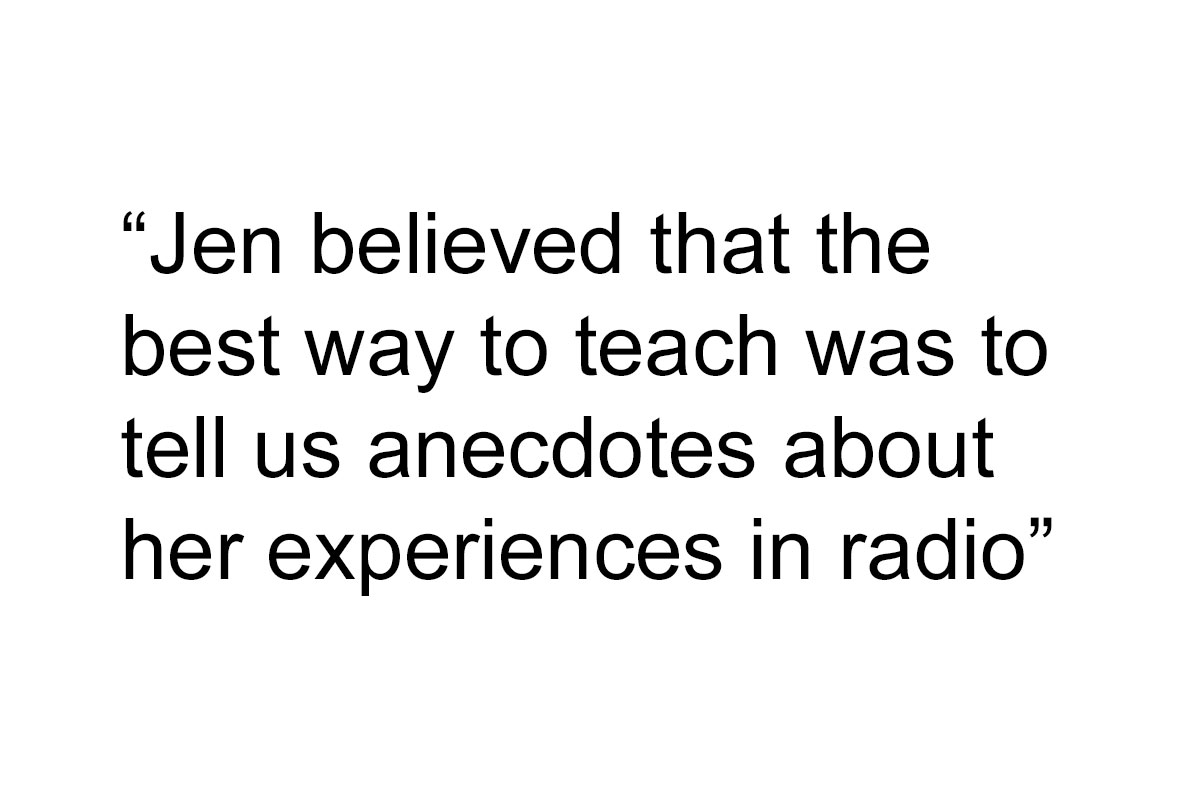
Self-Absorbed Professor Is Brought Back To Reality After One Student Cracks The Code To Getting 100% Pass Rate
Interview With AuthorIn our experience, the very best professors and teachers are people who make their topics relevant, genuinely care about everyone’s growth, and are transparently fair to all of their students. However, far from every academic and educator is a saint. Some of them care more about stroking their egos than teaching the class.
Redditor u/GeldedDesires recently shared an amusing story with the r/pettyrevenge subreddit, about how they taught a college professor a lesson she’d never forget. The professor spent more time telling everyone about her illustrious career than going through the learning material—something she planned to test everyone on. Well, the OP found a way to ensure their entire class got a 100% pass rate. Read on for the full story.
Bored Panda got in touch with the author of the post, u/GeldedDesires, and they were kind enough to answer our questions. You’ll find what they told us below.
Many of us had to deal with frustrating professors who can’t teach properly but still expect us to know everything for the exam
Image credits: Rawpixel (not the actual photo)
One former student shared how they used their egocentric professor’s own rules against her
Image credits: LightFieldStudios (not the actual photo)
Image credits: GeldedDesires
“I think nobody pushed back because Jen was a department head and very charismatic”
Redditor u/GeldedDesires told Bored Panda that their story probably got a lot of attention on Reddit because “many college students have had professors who didn’t clearly cover the material they were presenting.”
We were curious whether the OP had been at all worried about the plan going wrong somehow. However, that wasn’t the case! “I was not worried that my plan would backfire, because I’d clarified that my plan was technically allowed,” they pointed out that they’d thoroughly done their research beforehand.
The former student shared their perspective on what makes for a great or horrible professor. “In my experience, what makes a good educator is a willingness to engage with students and the material, and make sure that students actually understand what is being taught,” they told Bored Panda.
Meanwhile, some red flags include professors who brag about how hard their classes are, as well as those who refuse to update their material “to reflect the realities of the field they’re teaching.” Moreover, educators who “won’t answer questions clearly when asked” should also set your your alarm bells off.
Finally, we wanted to know why nobody had done much to criticize the professor until the OP’s plan to use the ‘god notes.’ “I think nobody pushed back because Jen was a department head and very charismatic. She taught several core classes, and it was pretty important to getting a degree in journalism that you not piss her off,” u/GeldedDesires explained.
“I knew several students that disliked her classes, but also several more that felt she was a fun professor because she was personally quite charming.”
After dealing with several perfect pass rates, the professor finally learned her lesson
A lot of redditors enjoyed u/GeldedDesires’ story. At the time of writing, their post had gotten 5.2k upvotes, and the OP had received a bunch of different awards.
The OP used their college professor’s own rules against her and managed to squeeze all of the info from her slides onto the notes they were all allowed to bring into the exam. They also gave a copy of the notes to all of the other students. The result? A perfect pass rate—the first in years!
The notes then became known as the ‘god notes’ and the OP also shared them with any other students who wanted them. They all managed to play around the professor’s rules for the note format. Eventually, she had to rewrite the entire curriculum and did the unimaginable: she actually ordered textbooks for the class!
A perfectly balanced class is one where the material isn’t too easy and is challenging without being overwhelming. That way, you’ll be able to improve your knowledge base while avoiding boredom and anxiety.
Talking to the college staff directly can help you find a compromise
Image credits: Adetola Afolabi (not the actual photo)
As reported by University Business, a survey of 1k college students conducted by Intelligent.com found that a whopping 87% of respondents found their professors’ classes too challenging. A tenth of students filed complaints against them for being far too tough. Meanwhile, nearly a third revealed that they’ve cheated to try and get a better grade.
If you find yourself dealing with an incredibly tough professor, broadly speaking, there are two main ways how you can handle the situation. The first one is very direct and can be a bit awkward. Talk to your professor after class or during their office hours about the curriculum.
Explain your concerns to them, whether it’s about the quality of the material, their teaching habits, or their approach to grading. Try to be as diplomatic as you can and suggest a few alternatives to how they do things so you can come to some sort of compromise. Keep in mind that your professor isn’t a mind-reader and they can’t know if something’s causing the entire class tons of stress if nobody broaches the subject.
The second approach is to rise to the challenge. Instead of trying to change the (potentially unfair) curriculum, you instead focus your energy on learning the material you need for all the essays and exams. This will probably mean making some small sacrifices to fit in more study hours into your week, like going out with your friends less or spending less time binging TV shows. In essence, you’re showing your professor how disciplined, resilient, and capable you can be when you put your mind to it.
Whatever the case might be, if the educator is genuinely unfair, you can always talk to the head of the department or the college’s administrative staff about the situation in the classroom. Or you can leave a very detailed and honest review about the course ASAP.
A great educator is someone who can make their students genuinely interested in their subject
Image credits: Yan Krukau (not the actual photo)
In our experience attending university classes over the years, we’ve essentially learned to recognize some of the signs of good and bad professors. There’s likely to be trouble if the handouts detailing the curriculum are either unclear or haven’t been updated in a decade. Meanwhile, another sign of possible trouble up the road is the overuse of slides in class: there is no need for hundreds of slides each week (some of them with Word Art and expired links).
When someone’s truly passionate about a subject, their enthusiasm is bound to rub off on everyone else. Good educators find ways to make their students care about the topic as much as they do. They demonstrate the importance of the knowledge they’re acquiring each week, instead of focusing just on grades and attendance. True learning happens when there’s a discussion between the educator and the students. (Which is why we prefer seminars to lectures!)
According to USNews, some of the more obvious signs of a bad professor include their inability to present the material in an interesting way. If they can’t keep anyone’s attention and they keep talking about how much they hate the course, those are alarm bells, and you’d best listen to them!
Moreover, all professors should be very clear about what they expect from their students. Everyone should be on the same page when it comes to the syllabus, how everything’s going graded, and what exactly is going to be on the exam. The biggest sin you could make is to make the information convoluted and unclear. It’s a surefire way to make everyone frustrated and demotivated. Remember: you’re all supposed to be on the same side here, not competing against one another.
Here’s how the internet reacted to the author’s hilarious post
[Share similar stories]
Betting this was a required class. A class they felt you HAD to know stuff from if you want to be great at your major. College is a scam yet you often have to do it.
Engineering major so I became very capable of tiny writing for the one, 3x5 notecard allowed for the tests. These stories are inspired! One time my history Professor slipped in a question on the midterm. It asked something like 'Name to famous artist.' Of course, I got the question wrong because I couldn't find that info in my notes. I went to the professor because that question cost me an A and said I don't remember him teaching anything about artists. The Prof said that he just said name 2 famous artists as in name any that you knew. Ugh, trick question!!
Betting this was a required class. A class they felt you HAD to know stuff from if you want to be great at your major. College is a scam yet you often have to do it.
Engineering major so I became very capable of tiny writing for the one, 3x5 notecard allowed for the tests. These stories are inspired! One time my history Professor slipped in a question on the midterm. It asked something like 'Name to famous artist.' Of course, I got the question wrong because I couldn't find that info in my notes. I went to the professor because that question cost me an A and said I don't remember him teaching anything about artists. The Prof said that he just said name 2 famous artists as in name any that you knew. Ugh, trick question!!

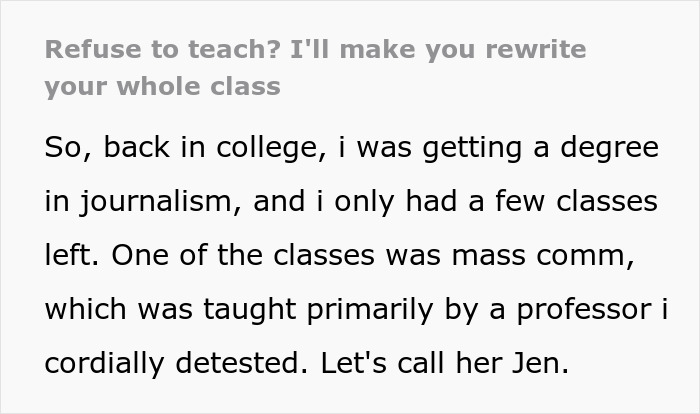

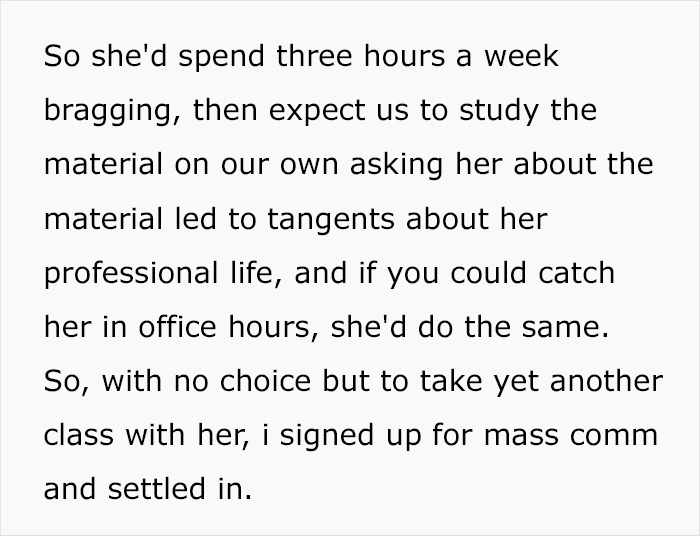

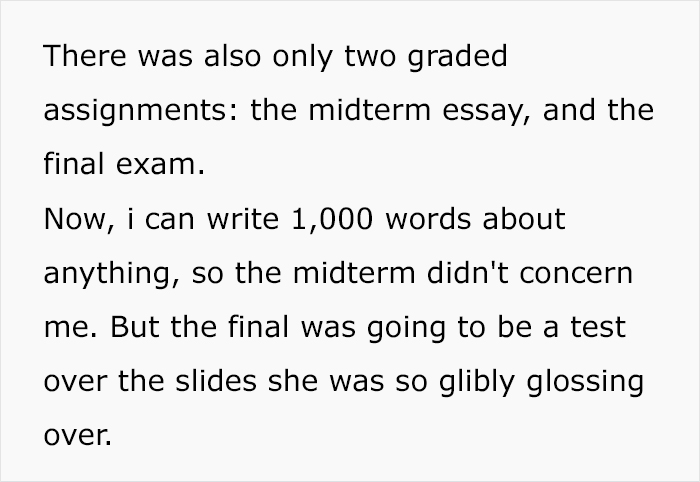






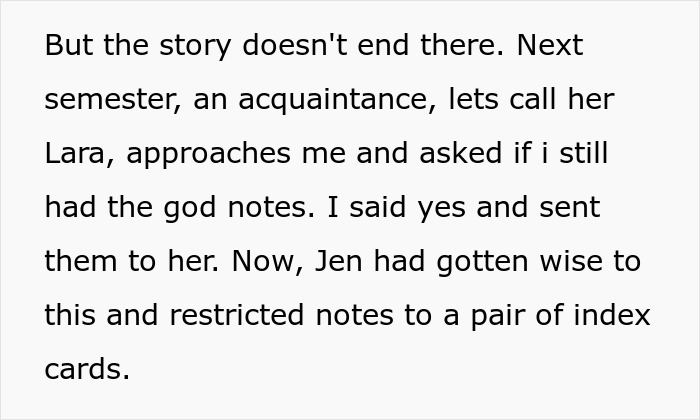
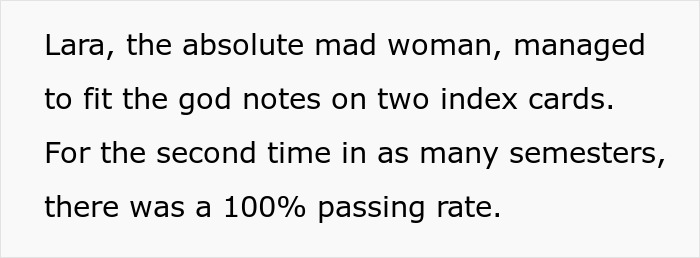
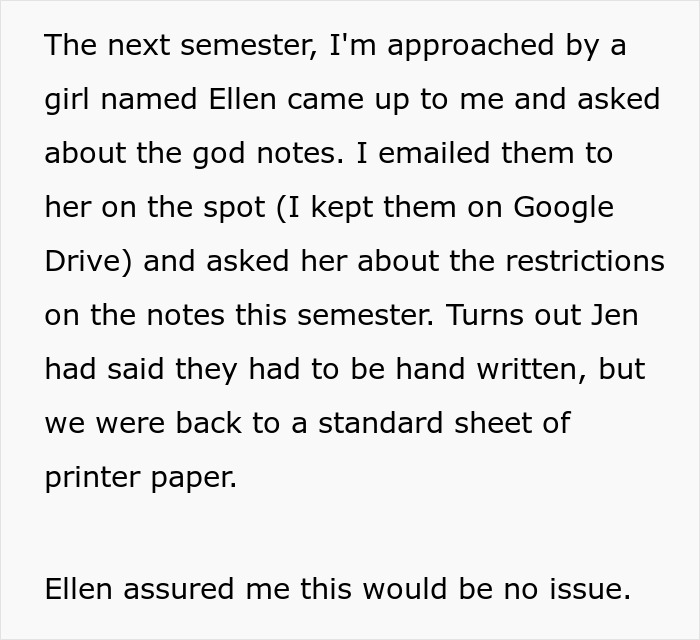
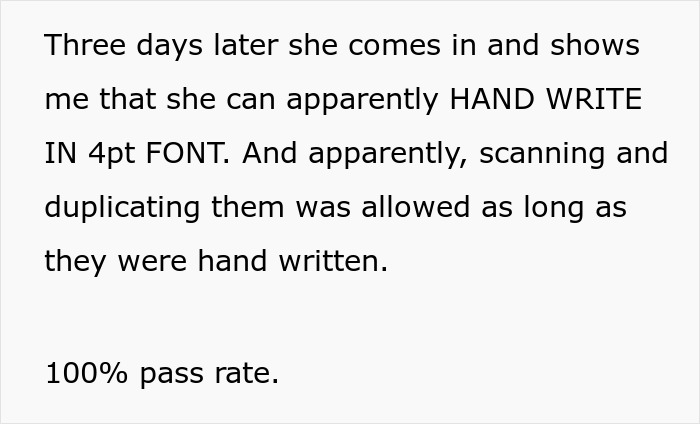




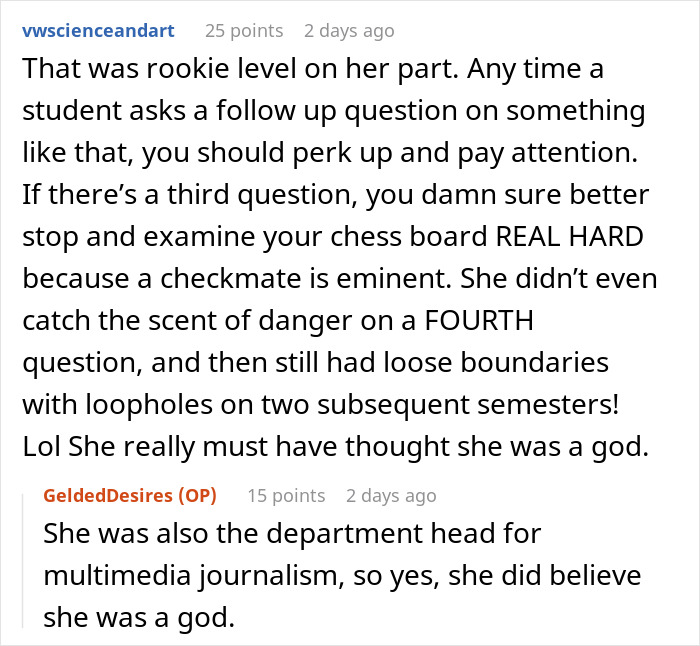
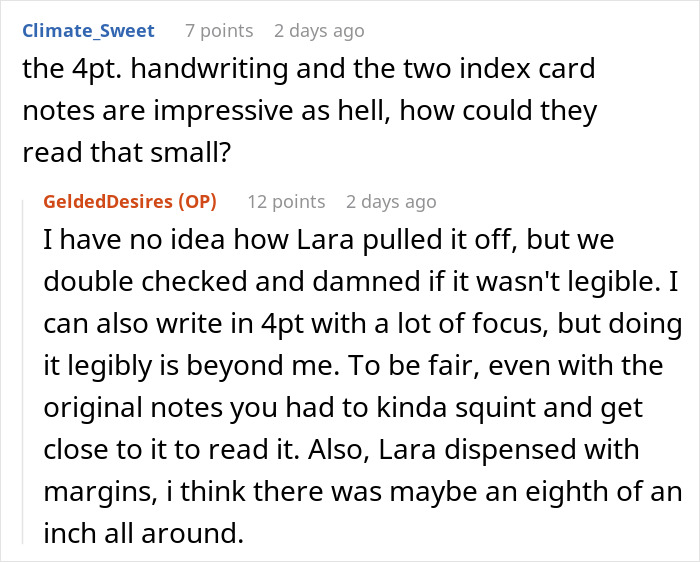
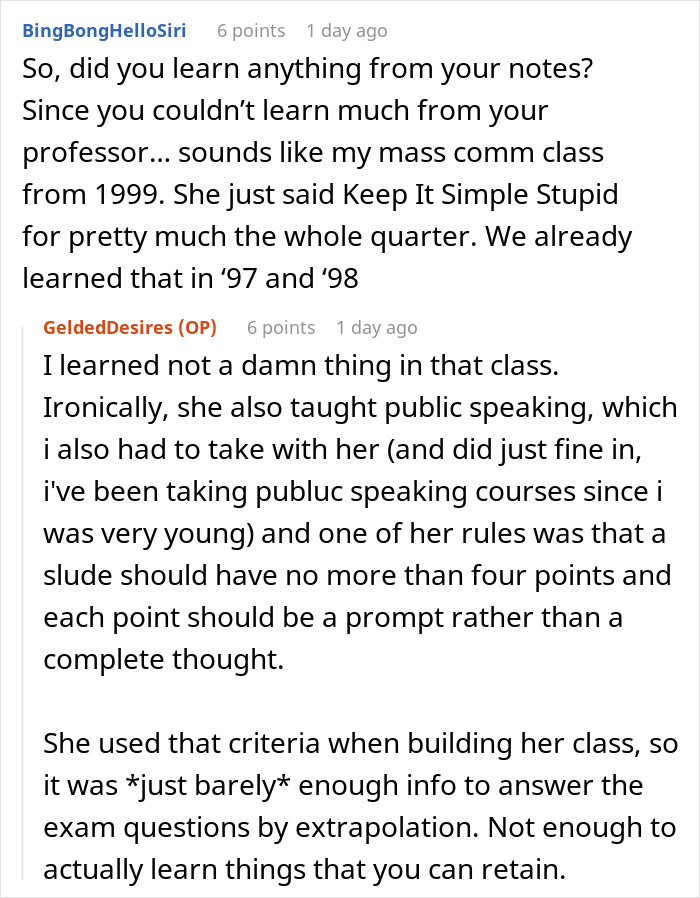
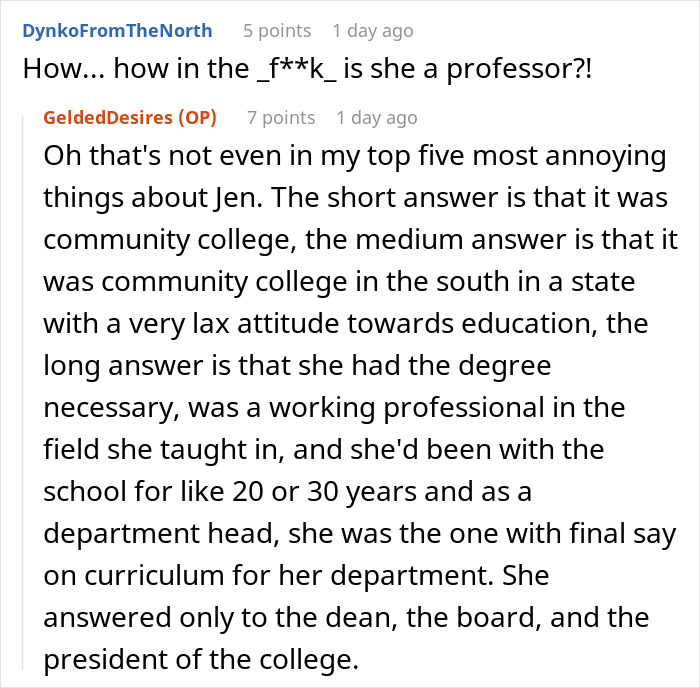
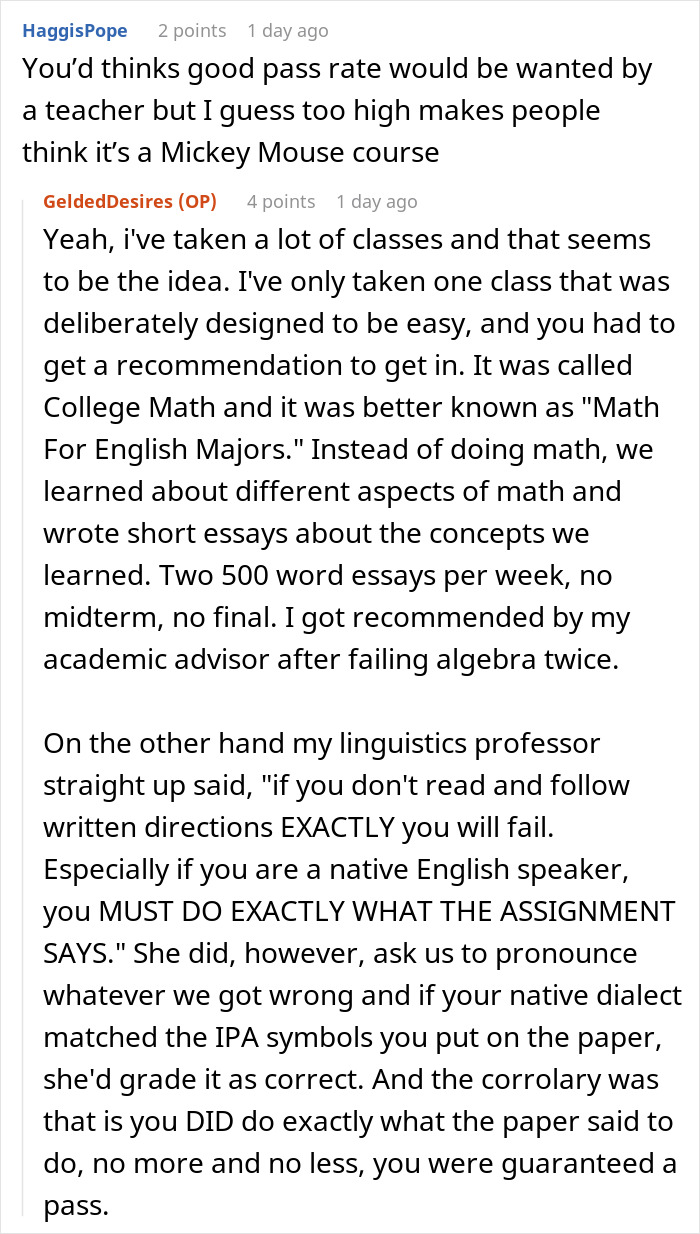







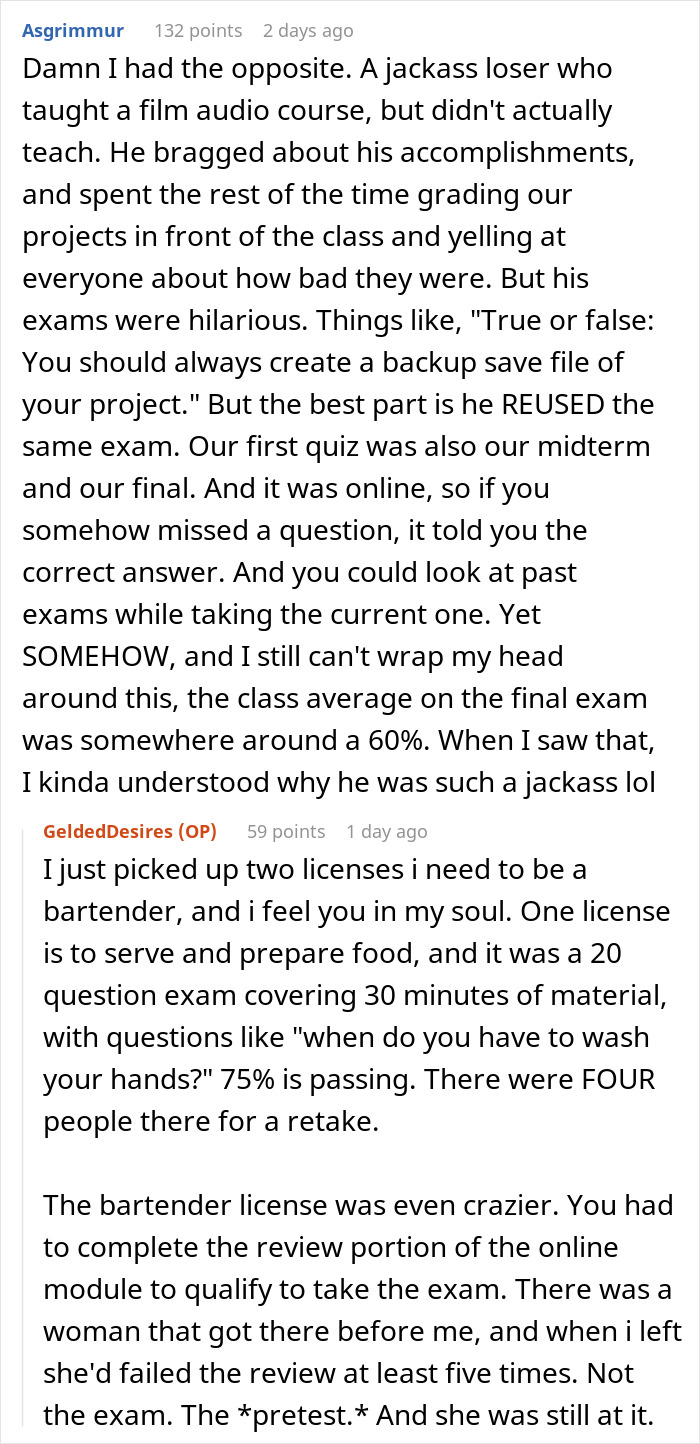
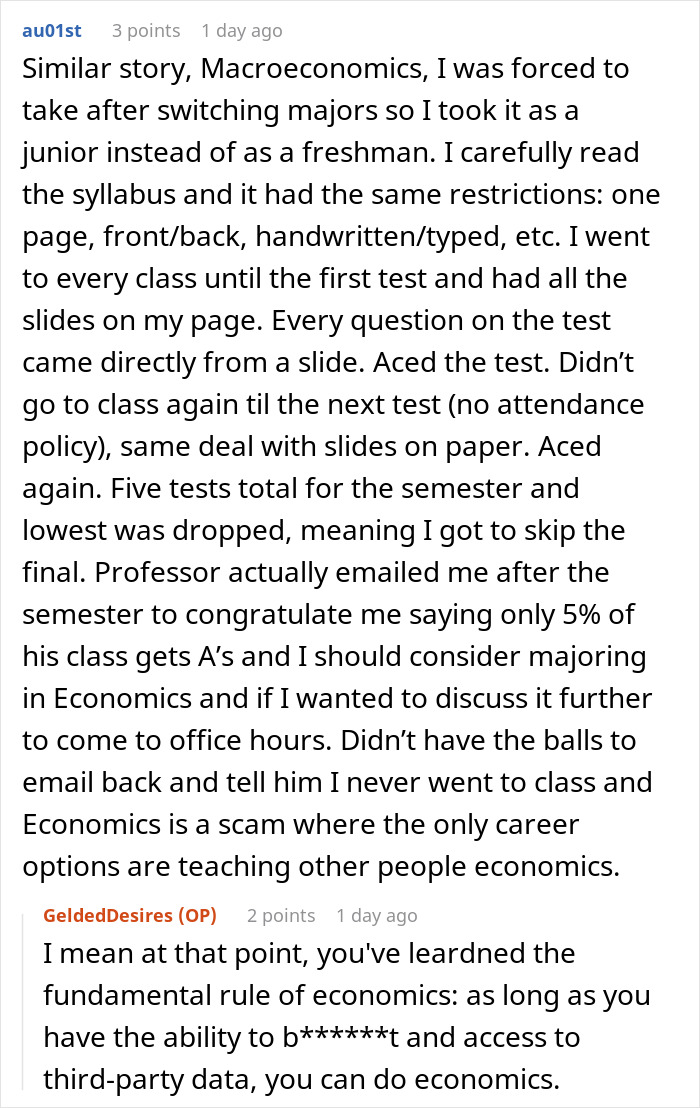
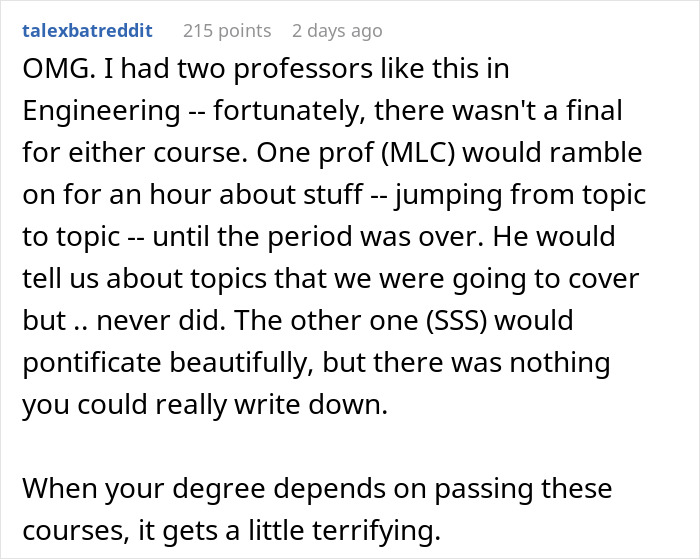








83
11